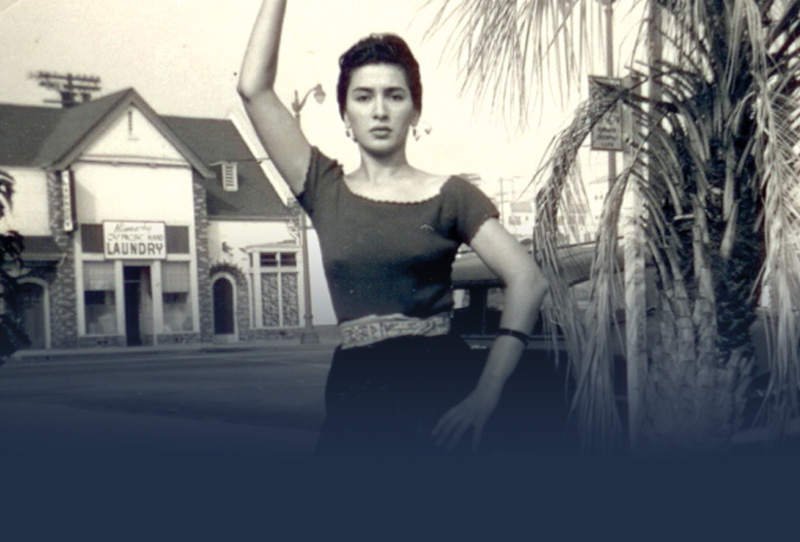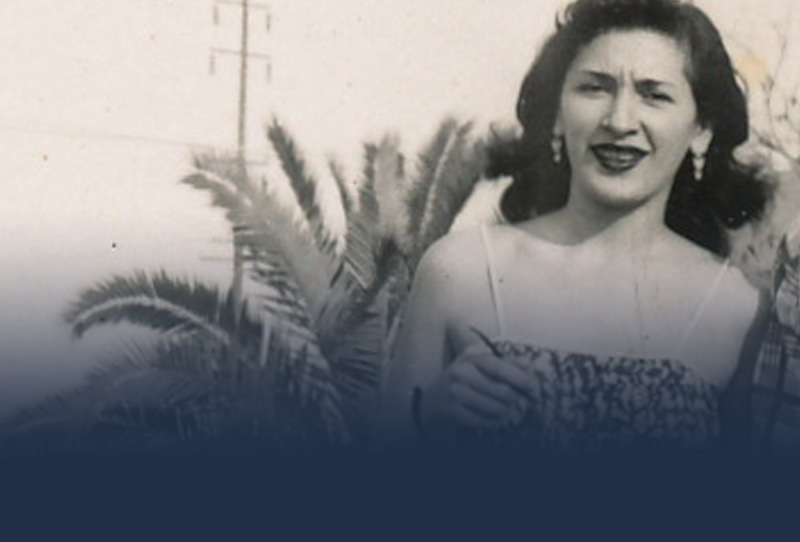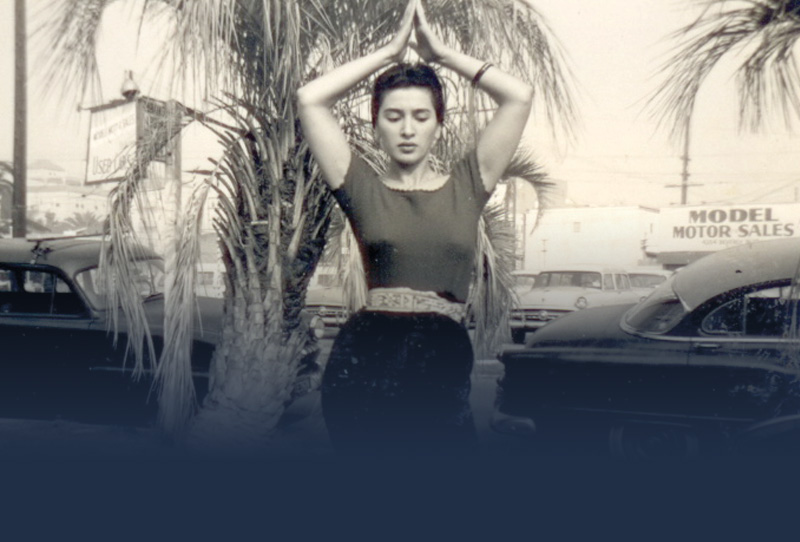(Los Angeles, 1947)
Habibi: Vol. 5, No. 2, (1979)
Hyganoosh prodded me to make my public debut on the basis of the level of performances I gave when in the privacy of her living room. She had a wonderful collection of Armenian, Arabic, and Greek 78 rpm records and a serviceable record player. Since she was such a supportive audience and overwhelmed me with her enthusiasm, I agreed to dance for the first time at a Turkish coffee klatch¹ which she was giving to celebrate the reunion of two lovers who had been separated for some time.

The thought of dancing with my midriff exposed, combined with my shyness at having to dance for the first time in front of people I didn’t know, made it frighteningly unbearable as the time came closer. I began to make excuses to Hyganoosh about my fears, and she disappointedly said that if I kept procrastinating I would never be a dancer or know the joy of performance. She assured me it would get better as I performed more often, and she prophesized a great career for me. As a last resort, she said I should take a couple of nips of liquor for courage just before I went on (a suggestion which can become a habitual reality with many professionals). It was now or never, and I dared not disappoint my benefactress.
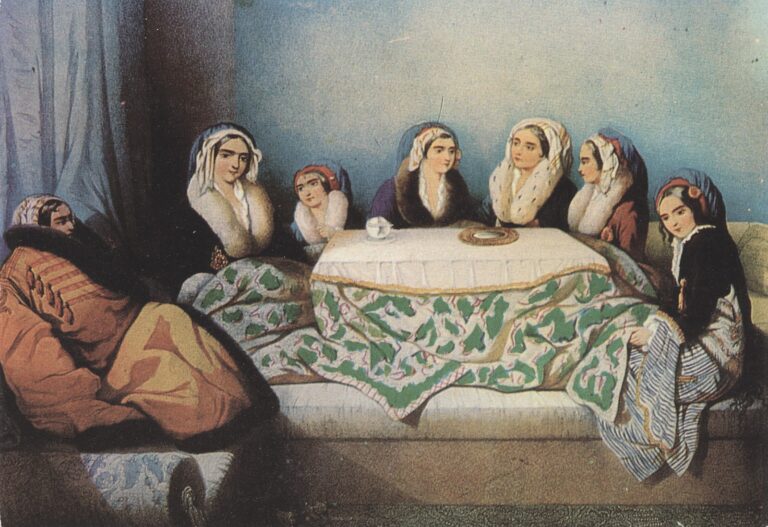
I diverted my anxiety by concentrating on the reasons and purpose of this party. Hyganoosh’s party consisted of twelve women and one man, excluding the two of us. All the invited women were Armenian with the exception of the Greek lady who had come from Chicago to claim the one invited male who was Armenian.
According to Hyganoosh, there were two types of men: flat tires and devils. This lone man was a devil and, according to her, had all the requisites. He was extremely good looking, well built and in an obvious state of good health. He had the air of one who had never had any real problems. Even age was settling gracefully on him with his combed “just-so” salt-and-pepper wavy hair. The women fawned over him. They acted as though they were fortunate just to be in his presence; he acted as though he agreed. Hyganoosh, too, was obviously stricken. As I watched this Armenian opera, I concluded that he was definitely not my cup of Turkish coffee.
There were all kinds of delicacies which had been prepared especially for that afternoon. The table was set with pitted dates, candied fruits and nuts, lamb balls stuffed with pine nuts and fried onions, baklava, cheeses and olives from Greece and Italy, and the flat Armenian bread which is softened by sprinkling it with water. Extra fancy Turkish coffee cups only used on special occasions were set on the dining room table to be admired before they were filled.
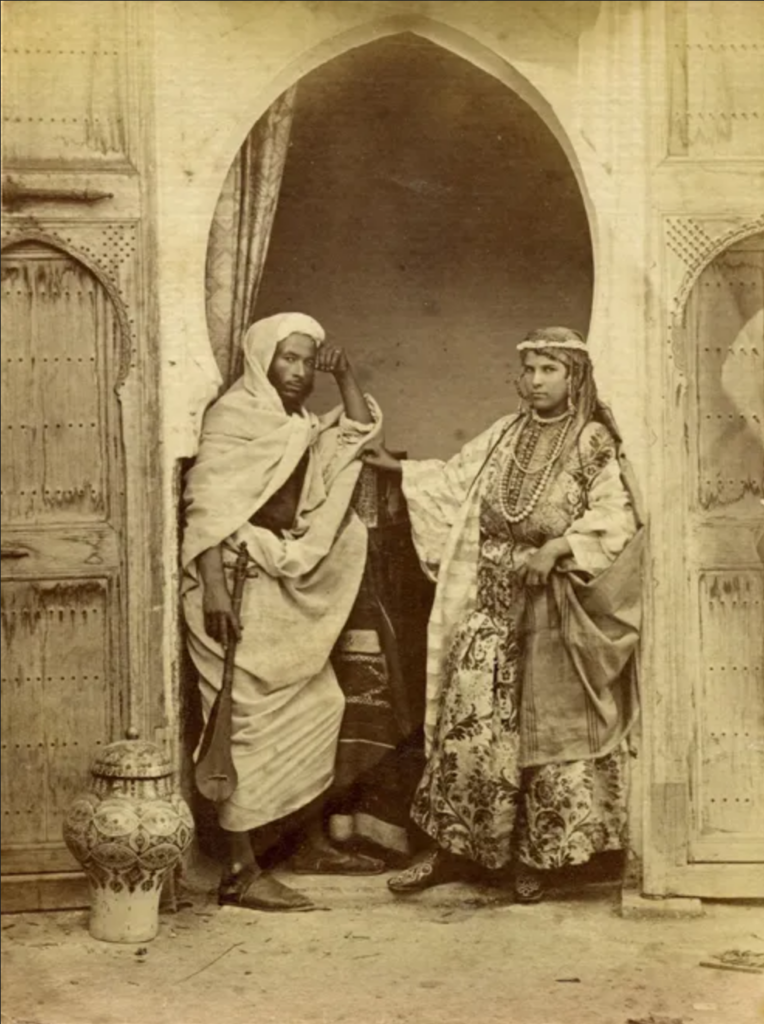
My performance was to be a surprise. Hyganoosh ordered me to withdraw into the bedroom to change. At a given signal, she would start the ciftetelli record, and I would appear, start dancing, and then circulate amongst the guests. My costume was new and uncomfortable. My heart was pounding and my expression was strained. I tried to look cheerful, but I was petrified. There seemed no way out but just to get it over with!
As I made my appearance in the hall, the music started. I figured I would dance into the dining room first and then end up in the living room towards the end of my three-minute eternity. Dancing down the hallway, I passed under the arched doorway and made my surprise entrance by stepping into the dining room. Unseen by the other guests, the man pinched me really hard on my behind in an act of contempt. My face grimaced from the pain; I tried not to react, but I got angry and confused. Hyganoosh looked at me, and I knew that she thought I was frightened. The women were polite, and some encouraged my attempt to entertain them. I managed to get through the record. It couldn’t have ended soon enough!
As I withdrew into the bedroom, Hyganoosh followed and thanked me. When I told her through my tears what had happened, she became sad and somewhat resigned at what she felt might be a common occurrence at a public affair, but she was disappointed in his lack of taste in her home and under these circumstances. She said she would mention something to him at a later date since she did not want to spoil the party. She asked me to ignore him and join the group for Turkish coffee before the party broke up; to please her, I agreed.
When I returned to the dining room, everyone was polite and chatting amicably. Subjects and language changed from Armenian to Greek to Turkish. The Turkish coffee was brought out with the usual oriental fanfare. Cigarettes were offered and lit. Puffs of smoke alternated with sips of coffee and animated conversation. Finally, the women began clearing away the clutter which cued the man to withdraw. He thanked everyone for their presence and the hostess for her hospitality; with a casual glance of indifference toward me, he took his leave.
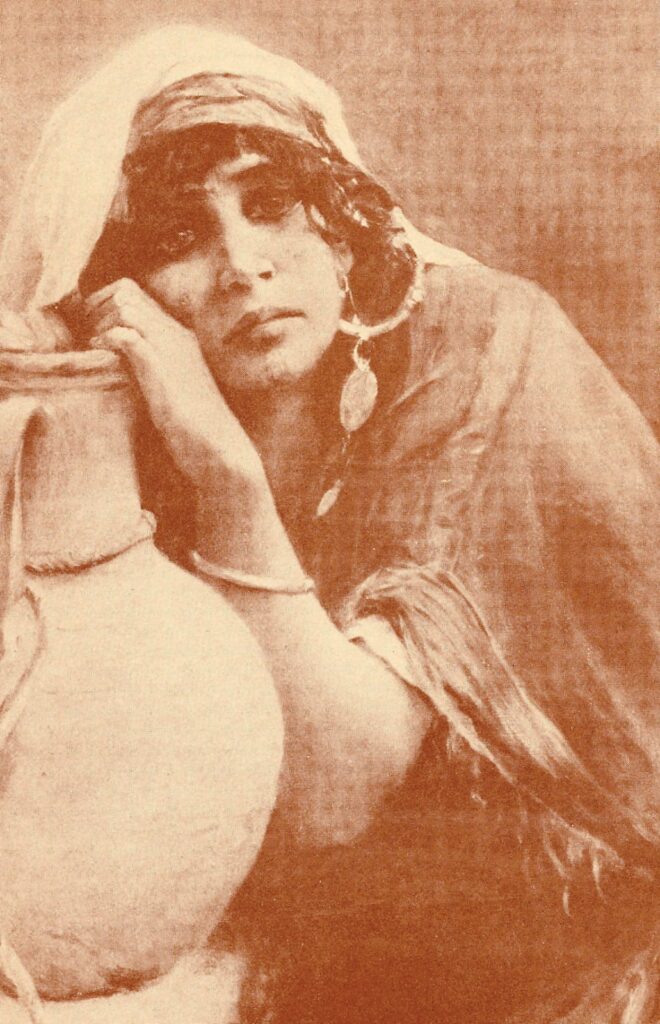
When the living room door closed, the pitch of chatter became so heightened that I asked Hyganoosh what was going on. She told me I had just been part of a momentous gathering predicted by a fortuneteller. It seems that the Greek lady from Chicago desperately desired the fulfillment of the promise of marriage from the Armenian dandy. She had loaned him a considerable amount of money in the form of a pre-marital dowry to set him up in business on the West Coast. He came to Los Angeles, opened a jewelry store, and became established; however, he neglected to send for his wife-to-be. Growing weary of excuses, promises, and waiting, she came to Los Angeles to claim her man. He was clever, though, and kept her at bay. In desperation, she sought out the advice of a famous fortuneteller who, in the community, was especially renowned for love potions.
Love potions? Yes! And special talismans, too! And that’s what the gathering was all about. Did he know that she had gone to a fortuneteller, I asked? Of course not, Hyganoosh replied. What was this powerful potion, I asked? Well, it seems the Greek lady was advised to, among other things, brew him a special cup of Turkish coffee. As part of the ingredients, she was instructed to pour in a certain portion of the contents of her bladder and to serve him the Turkish coffee with her own hands, which she did. The potion was said to be potent and never failed. He was, I was told, soon going to fall hopelessly and madly in love with her. I didn’t inquire any further.
This article was published in Jamila’s Article Book: Selections of Jamila Salimpour’s Articles Published in Habibi Magazine, 1974-1988, published by Suhaila International in 2013. This Article Book excerpt is an edited version of what originally appeared in Habibi: Vol. 5, No. 2, (1979).
¹ A term derived from German meaning a gathering in which the attendees drink coffee and gossip.
Photo Credits
- Turkish harem ladies lounging, Painting by Camille Rogier, Public Domain.
- Moorish Musicians in Tanger, George Washington Wilson, Photograph, 1880, Public Domain.
- Woman with pot, unknown artist, Public Domain.
